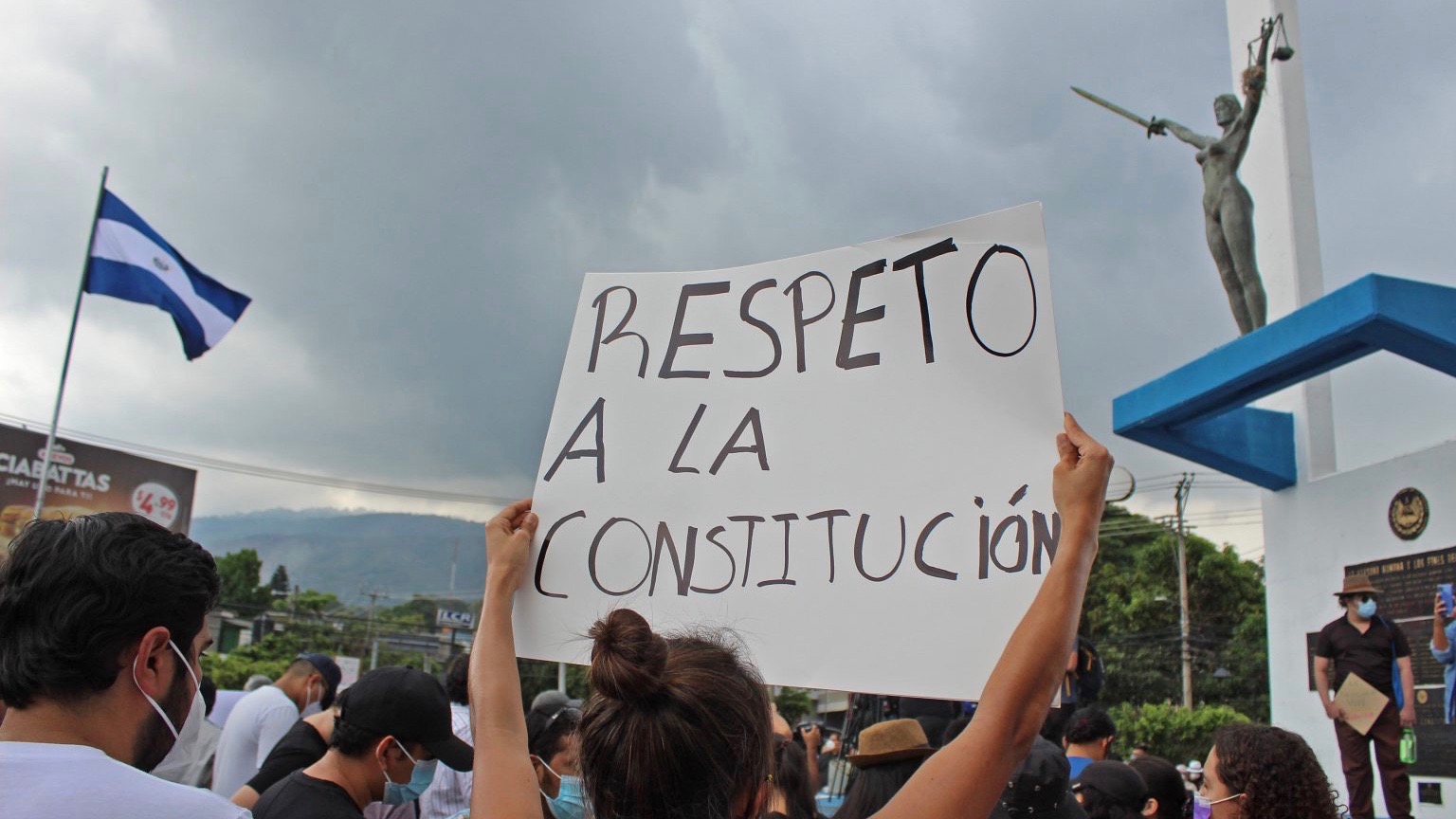El Salvador’s President Nayib Bukele once again faced widespread national and international criticism for the recent decision of the new Legislative Assembly to dismiss the Supreme Court judges and the Attorney General of the Republic. Several leaders stressed that the decision represented an attack on democracy and the rule of law in the country.
On May 1, the new Legislative Assembly of El Salvador, now dominated by the political alliance of the New Ideas (NI) and the Grand Alliance for National Unity (GANA) parties led by the authoritarian far-right President Bukele, was officially sworn in. Following their inauguration, in the first session of the 2021-2024 legislature on the same day, the newly elected legislators voted on a motion to remove all five judges from the Constitutional Chamber of the Supreme Court for allegedly “endangering the lives of citizens with their resolutions during the quarantine decreed to contain the spread of COVID-19.” Later the same day, the lawmakers also voted to remove Attorney General Raúl Melara from office under the argument of allegedly acting “with clear political motivations, which call into question his objectivity, independence, and impartiality.”
Both the motions were approved without effort -with 64 votes in favor, 19 against and 1 abstention- as the ruling party and its allies have a two-thirds majority in the country’s unicameral parliament. The NI-GANA alliance won an overwhelming victory in the legislative elections held on February 28 and secured 61 of the 84 seats.
Shortly after this decision was known, several social and human rights organizations and activists condemned the dismissal of officials and denounced it as a blow to the rule of law and an attack on democracy.
The Constitutional Chamber issued a resolution declaring the dismissal of its judges unconstitutional. The chamber pointed out that the parliamentary measure violates “the republican, democratic and representative form of government and the pluralist political system” and seeks “to suppress judicial control over the Executive and the Legislative.” “The lack of approval from the Executive Branch is no reason to dismiss constitutional judges,” it added.
The opposition left-wing Farabundo Martí National Liberation Front party (FMLN) deemed the move as a legislative coup. In a statement, the FMLN described the decision as “open and blatant interference in other organs of the State” and said that it “constitutes an open and manifest intention of absolute control of the powers of the State, putting them all at the service of whoever exercises the authority of the Executive.” The Front called on the international community “to denounce the situation and defend the democratic freedoms violated by a powerful group that threatens the norms of peaceful coexistence.”
The Secretary General of the FMLN party, Óscar Ortiz, condemned the decision, calling it “a clear blow to democracy” and “another step in the direction of dictatorship and authoritarianism.” Ortiz said that it is an attempt “to close all democratic spaces, and represents a real threat to the country.”
Local media reports also highlighted that Bukele punished the judiciary for objecting to the harsh restrictions imposed by his administration to fight the pandemic. In June 2020, the Supreme Court judges had declared unconstitutional the strict quarantine measures issued by Bukele without sufficient economic support.
On May 2, members of various social organizations took to the streets of El Salvador’s capital, San Salvador, in rejection of the decision. A group of 300 protesters demonstrated at the Monument to the Constitution or La Chulona to denounce the misuse of power and usurpation of the Supreme Court and the Attorney General’s Office by the ruling party.
International condemnation
The decision also received condemnation from international leaders. The UN Special Rapporteur on the Independence of Judges & Lawyers, Diego García-Sayán, joined the expressions of condemnation against the measure and said that he condemns “the steps that the political power has been taking to dismantle and weaken the judicial independence of the judges by dismissing members of the Constitutional Chamber.” García-Sayán added that “all removal proceedings must address specific causes previously established by law. This Rapporteurship will remain vigilant and will act against any action aimed at affecting the work of constitutional judges in El Salvador.”
On May 4, the UN High Commissioner for Human Rights Michele Bachelet also warned that the decision by El Salvador’s Legislative Assembly “seriously undermines democracy and the rule of law in the country.” “The separation of powers is a cornerstone of any democracy. Weakening of this important system of checks and balances leads to the erosion of the pillars of the rule of law and thus of a country’s democratic system,” the High Commissioner said.
However, the Salvadoran president dismissed all the criticism received from abroad and defended the move, accusing the judges of taking away his powers to face the health crisis.





